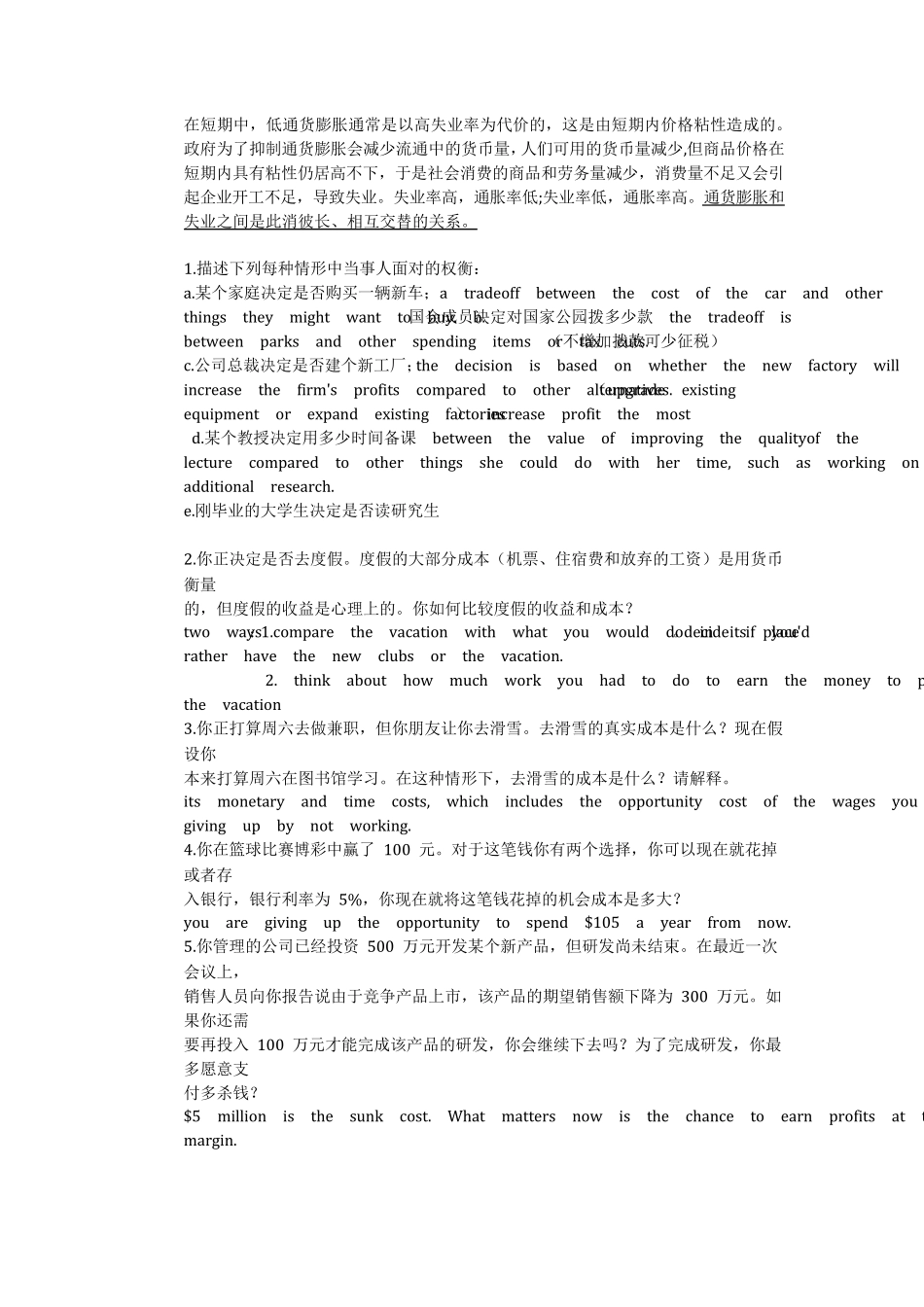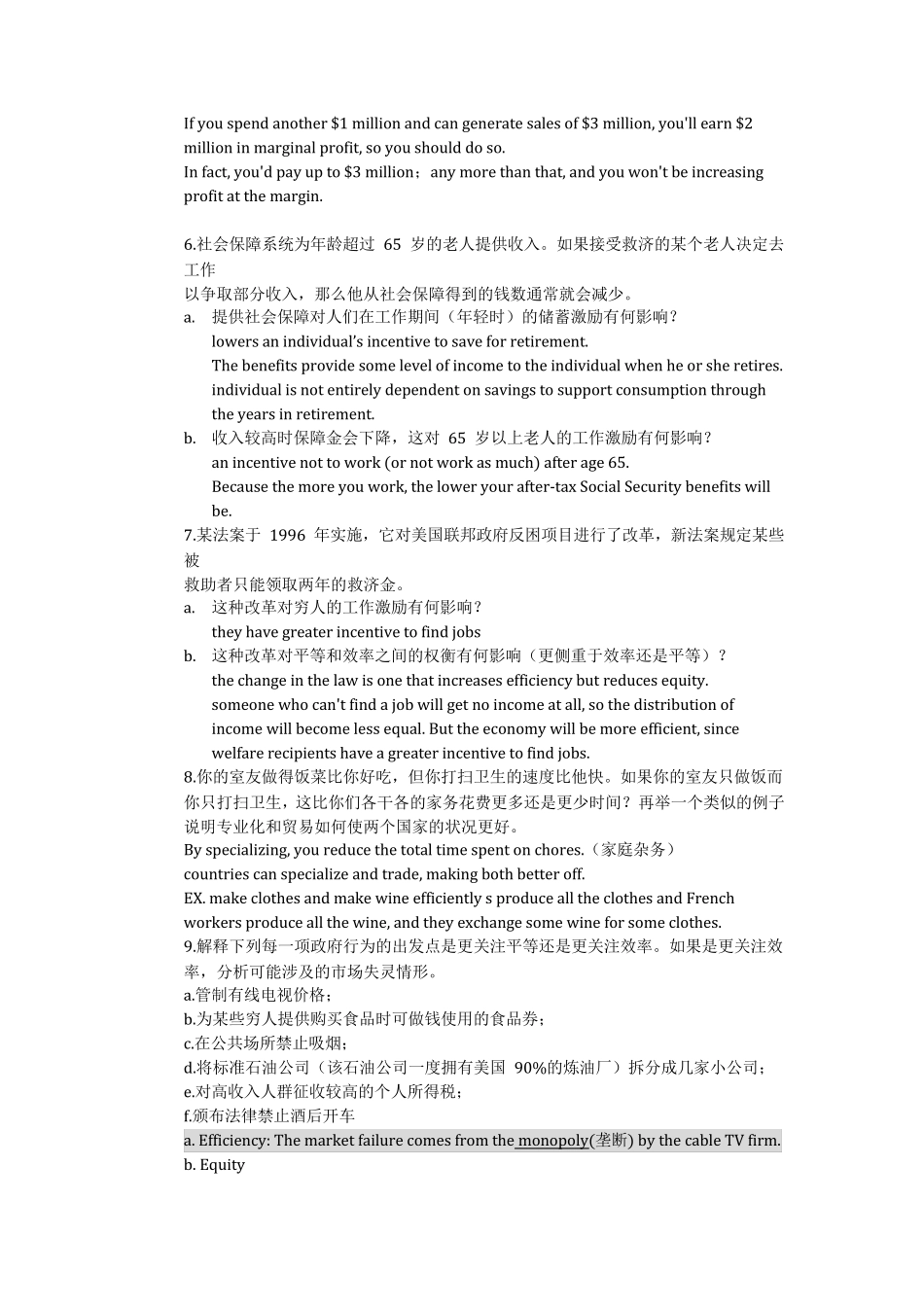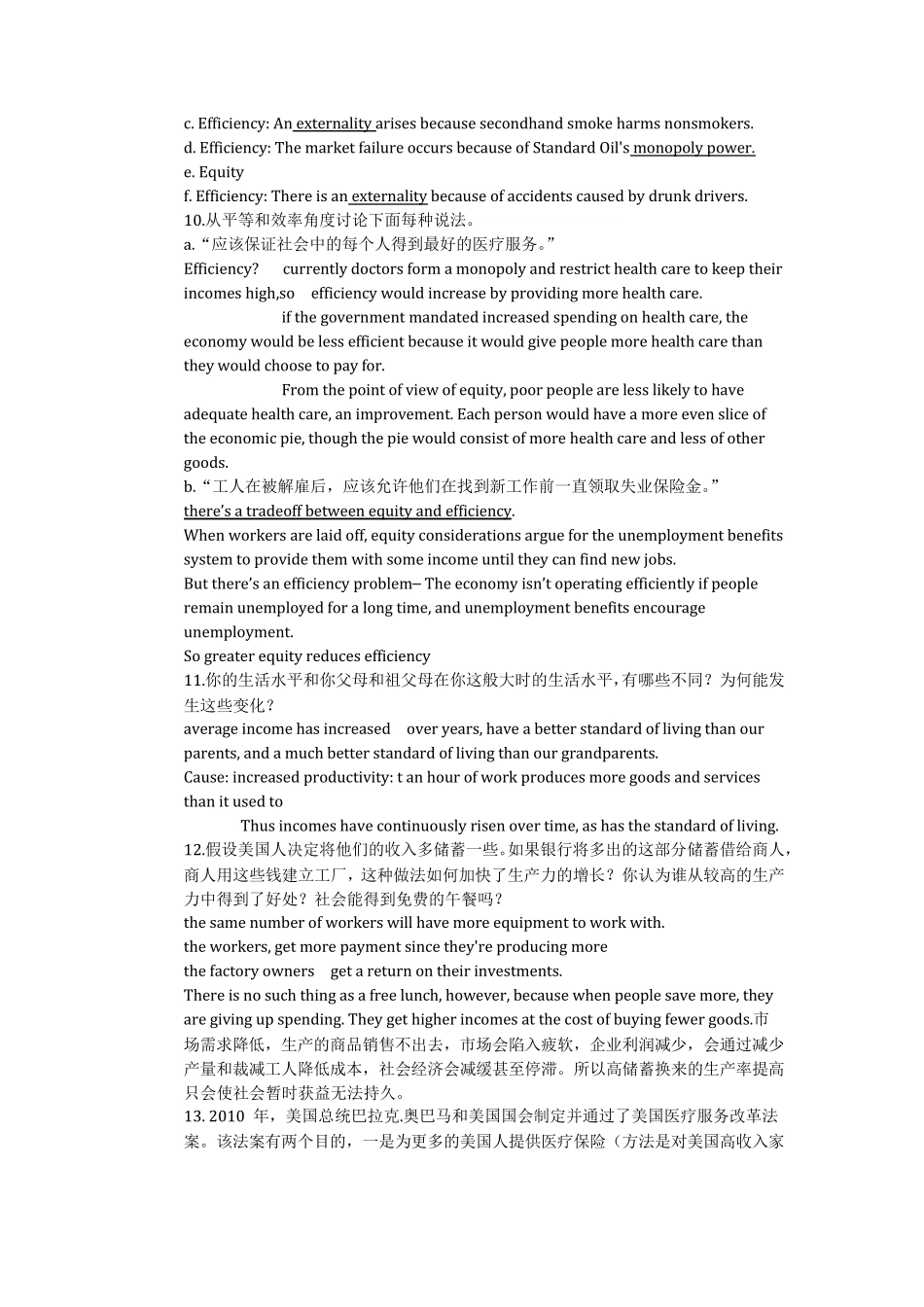在短期中,低通货膨胀通常是以高失业率为代价的,这是由短期内价格粘性造成的。 政府为了抑制通货膨胀会减少流通中的货币量,人们可用的货币量减少,但商品价格在短期内具有粘性仍居高不下,于是社会消费的商品和劳务量减少,消费量不足又会引起企业开工不足,导致失业。失业率高,通胀率低;失业率低,通胀率高。通货膨胀和失业之间是此消彼长、相互交替的关系。 1.描述下列每种情形中当事人面对的权衡: a.某个家庭决定是否购买一辆新车;a tradeoff between the cost of the car and other things they might want to buy. b.国会成员决定对国家公园拨多少款 the tradeoff is between parks and other spending items or tax cuts.(不增加拨款可少征税) c.公司总裁决定是否建个新工厂;the decision is based on whether the new factory will increase the firm's profits compared to other alternatives. (upgrade existing equipment or expand existing factories) increase profit the most d.某个教授决定用多少时间备课 between the value of improving the qualityof the lecture compared to other things she could do with her time, such as working on additional research. e.刚毕业的大学生决定是否读研究生 2.你正决定是否去度假。度假的大部分成本(机票、住宿费和放弃的工资)是用货币衡量 的,但度假的收益是心理上的。你如何比较度假的收益和成本? two ways:1.compare the vacation with what you would do in its place。decide if you'd rather have the new clubs or the vacation. 2. think about how much work you had to do to earn the money to pay for the vacation 3.你正打算周六去做兼职,但你朋友让你去滑雪。去滑雪的真实成本是什么?现在假设你 本来打算周六在图书馆学习。在这种情形下,去滑雪的成本是什么?请解释。 its monetary and time costs, which includes the opportunity cost of the wages you are giving up by not working. 4.你在篮球比赛博彩中赢了 100 元。对于这笔钱你有两个选择,你可以现在就花掉或者存 入银行,银行利率为 5%,你现在就将这笔钱花掉的机会成本是多大? you are giving up the opportuni...


